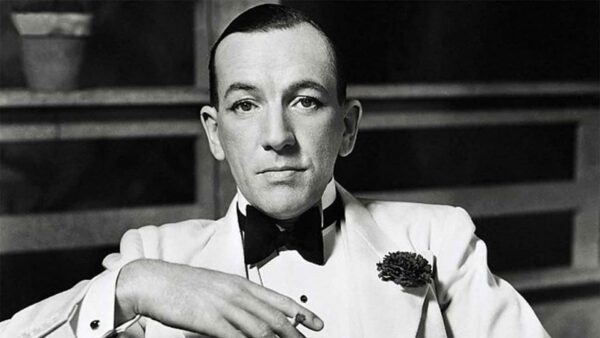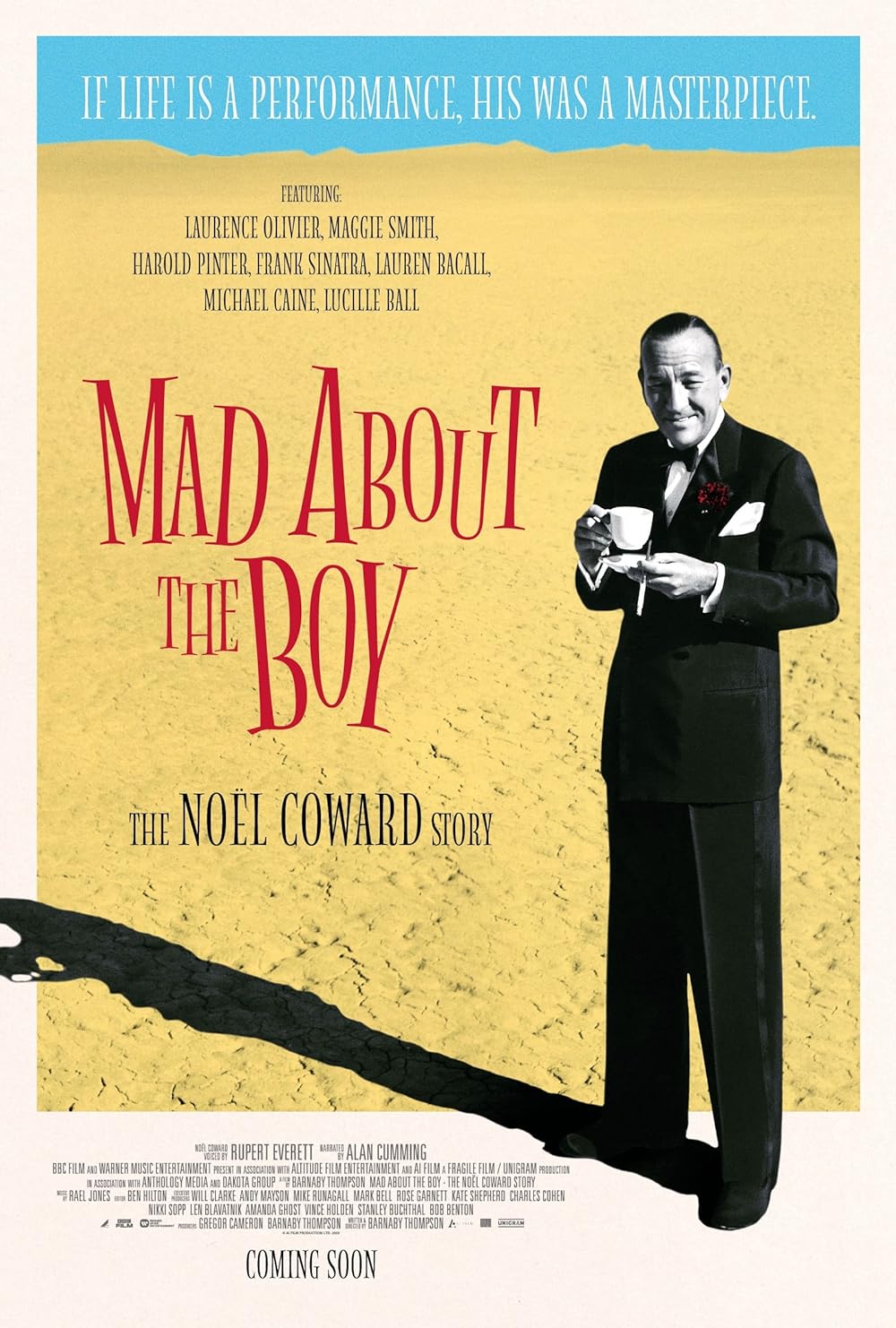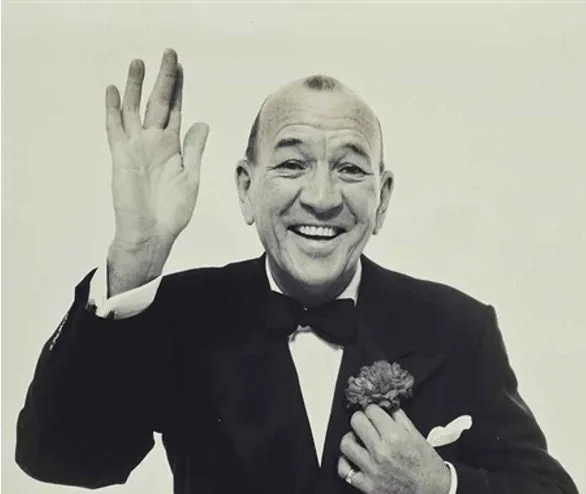
Barnaby Thompson‘s compelling and affectionate portrait of one of the greatest quintessential English man of the first half of the last century is such a sheer joy to view. Noel Coward, later to be Sir Noel, and universally known as The Master was famous as a playwright, composer, director, actor, and singer, and one of the wittiest flamboyant men of his generation.
Equally fascinating is the fact he was a completely self-made man having come from a poor working class family to then eventually being the toast of ‘high’ society. He started out as child actor at the age of 12 in 1911, and was so successful that he very soon became the breadwinner for his entire family . Along the way he lost his childhood stutter and gained a plummy accent that became one of his signature hallmarks.
 Thomas, who once ran the famous Ealing Studios, had access to a treasure trove to a coterie of the stars he worked with (looking very young). But he also shared clips of several of Coward’s TV chat show appearances with the likes of David Frost and his rapid fire scintillating wit made for one of the highlights of the film. For me anyway .
Thomas, who once ran the famous Ealing Studios, had access to a treasure trove to a coterie of the stars he worked with (looking very young). But he also shared clips of several of Coward’s TV chat show appearances with the likes of David Frost and his rapid fire scintillating wit made for one of the highlights of the film. For me anyway .
Coward acted his way in various plays in London during the First World War, and then with just £17 in his pocket he sailed to NY in 1921 to try his luck there. He had been writing his own plays since the age of 12 , and he took most of these scripts to try and interest American theatrical producers. He had little luck but was sharp enough to observe how different American comedies were, and adopting this style he wrote The Young Idea which gave him his first real success in London
 Just 3 years later he then had his first great critical and financial success as a playwright with The Vortex. Its controversial story was about a nymphomaniac socialite and her cocaine-addicted son (played by Coward) all considered very shocking in its day. Sharp-eyed critics saw the drugs as a mask for homosexuality but it played to packed audiences, and repeated its success when Coward took it to Broadway .
Just 3 years later he then had his first great critical and financial success as a playwright with The Vortex. Its controversial story was about a nymphomaniac socialite and her cocaine-addicted son (played by Coward) all considered very shocking in its day. Sharp-eyed critics saw the drugs as a mask for homosexuality but it played to packed audiences, and repeated its success when Coward took it to Broadway .
This was also the time of Cowards first gay live-in lover. Jack Wilson was an American Stockbroker who became Coward’s Manager and he would eventually end up robbing him blind
This was the start of Coward’s meteoric rise to fame. By June 1925 he had four shows running in the West End: The Vortex, Fallen Angels, Hay Fever and On with the Dance. But the down side of this was that his frantic pace caught up with him and he collapsed starring in The Constant Nymph in London. He ignored the doctors and sailed for the US to start rehearsals for his play This Was a Man but he collapsed again, so he set sail for Hawaii and rest.
Thompson details the roller-coaster track of Coward’s professional life. By 1929 Coward was one of the world’s highest-earning writers, with an annual income of £50,000, more than £3 million in terms of 2020 values. During World War 2 he was recruited as a Spy, a fact kept from the general population, but evident known to Hitler as he had included Coward on his “Must Be Killed’ List. Another of Coward’s wartime projects, was as writer, star, composer and co-director of the naval film drama In Which We Serve. The film was popular on both sides of the Atlantic, and he was awarded an honorary certificate of merit at the 1943 Academy Awards ceremony.
 The King wanted to reward him with a Knighthood, but Churchill refused on a petty excuse that Coward had once contravened currency regulations. To me it smacked of homophobia because although Coward was ‘closeted,’ his flamboyant style was one that people believed only queer men adopted.
The King wanted to reward him with a Knighthood, but Churchill refused on a petty excuse that Coward had once contravened currency regulations. To me it smacked of homophobia because although Coward was ‘closeted,’ his flamboyant style was one that people believed only queer men adopted.
Post WW2 Coward soon he discovered that his new plays were considered dated and out of style, and were not well received at all. They would eventually be replaced with the new ‘kitchen-sink’ dramas by the likes of Wesker and Osbourne which Coward made no secret of his distaste.
Down in his luck and in debt to about £20,000, one night found him at the cabaret club Cafe De Paris in London. It was one of those lightbulb moments and discovering yet another career he was soon performing his own songs on that same stage. It was an unprecedented success and soon he had an offer to take the show to Las Vegas where the packed audiences love his very Englishness .
He was back on top again professional and personally as since 1945 he had a new younger lover/partner in Graham Payn and they would be together right up to Coward’s death. He would go on to mix film roles with writing new plays/musicals ….. some like Sail Away were major successes on both sides of the channel.
In 1966 Coward abandoned his customary reticence and played an explicitly homosexual character in A Song at Twilight.The daring piece earned Coward new critical praise, and was just on year before Sexual Offences Act 1967 in the UK was passed finally legalizing homosexuality.. Then on is 7Oth birthday (in 1970) Coward was finally knighted and was elected a fellow of the Royal Society of Literature and the same year received a Tony Award for lifetime achievement
Coward had been closeted publicly and even in the 1960s refused to acknowledge his sexual orientation publicly, wryly observing, “There are still a few old ladies in Worthing who don’t know.” Despite this reticence, he encouraged his secretary Cole Lesley to write a frank biography once he was safely dead.
But now there is this joyous tribute detailing an extraordinary life of a extraordinary men which needs to be viewed more than once.
<center
ROGER WALKER-DACK Creator, Editor-in-Chief Miami Beach, FL / Provincetown, MA
IG @QUEERGURU Member
of G.A.L.E.C.A. (Gay & Lesbian Entertainment Critics Association) and
NLGJA The Association of LGBT Journalists. and The Online Film Critics Society. Ex Contributung Editor
The Gay Uk & Contributor Edge Media Former CEO and Menswear Designer of Roger Dack Ltd in the UK

